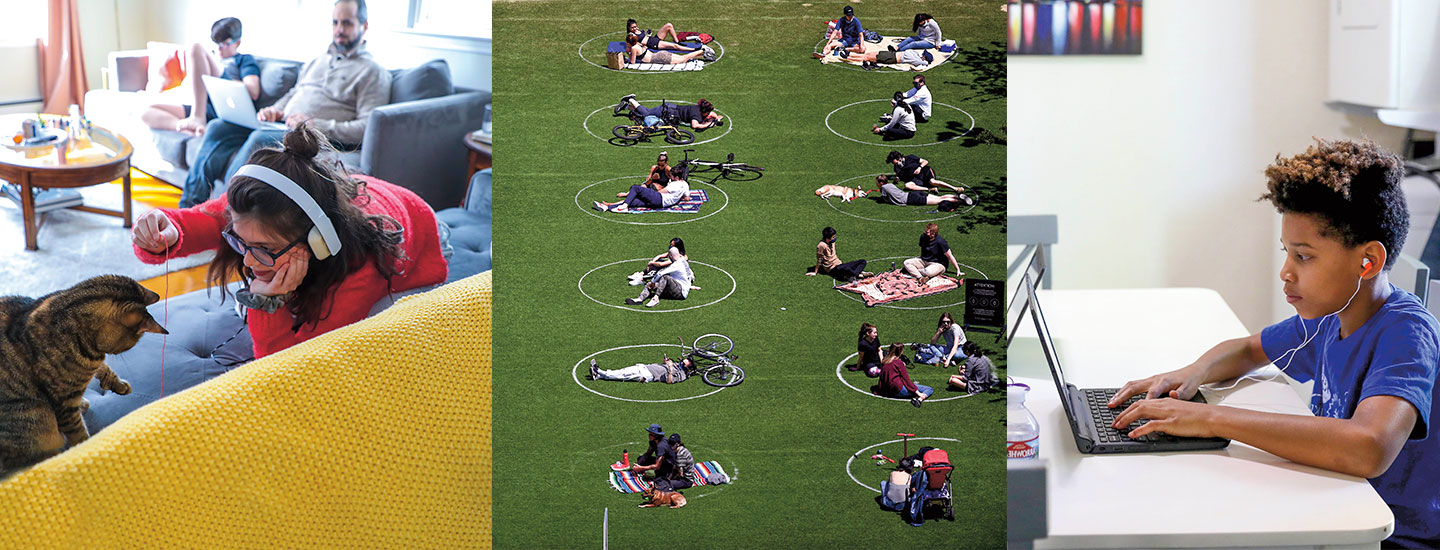When Ava Bennett left school on March 13, 2020, she was excited. The 10-year-old from Columbus, Ohio, had plans to go to Disney World with her family for spring break. But then she learned Disney World was closed. School was also closed for the rest of the year. In fact, her whole family had to stay home. Ava felt confused and sad.
Do Ava’s feelings sound familiar? Kids in every U.S. state spent the end of the 2019-2020 school year at home. The reason was a pandemic caused by a novel coronavirus. The virus was first detected in China in December 2019. It quickly spread around the globe, infecting millions and killing more than 500,000.
To stop the spread of the virus, officials in the U.S. closed schools and many businesses. People were ordered to stay home. They were asked to wear face coverings in public and keep 1.8 meters (6 feet) apart. The crisis has caused stress in both children and adults. But kids like Ava have found ways to persevere. “There’s light at the end of the tunnel,” Ava says.
Ava Bennett was excited when she left school on March 13, 2020. The 10-year-old lives in Columbus, Ohio. Her family had plans to go to Disney World over spring break. But then Ava learned that Disney World was closed. She also wouldn’t be going back to school. It was closed for the rest of the year. In fact, her whole family had to stay home. Ava felt confused and sad.
Do Ava’s feelings sound familiar? Something similar happened to kids in every U.S. state. They spent the end of the 2019-2020 school year at home. The reason was a pandemic. It was caused by a new coronavirus. The virus was first detected in China in December 2019. It quickly spread around the globe. Millions of people were infected. More than 500,000 people died.
Officials tried to stop the spread of the virus in the U.S. They closed schools and many businesses. People were ordered to stay home. They had to wear a face covering when in public and keep at least 1.8 meters (6 feet) apart. The crisis has caused a lot of stress in both children and adults. But kids like Ava have found ways to stay strong. “There’s light at the end of the tunnel,” Ava says.

